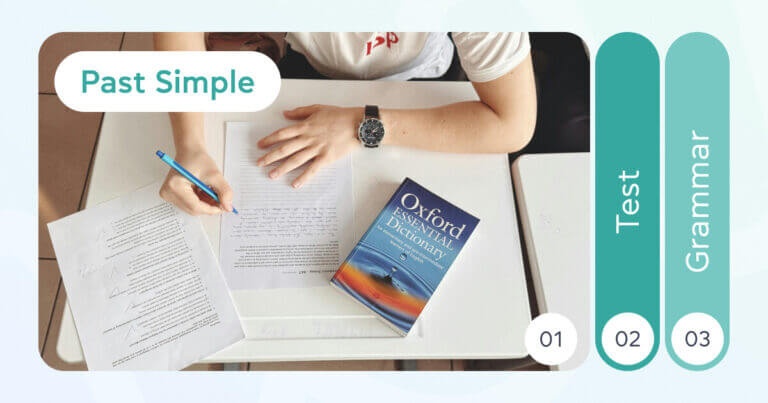Звідки екзаменатор, який приймає міжнародний іспит з англійської, IELTS, TOEFL, чи Cambridge English, знає який у вас рівень? Для цього існує CEFR (Common European Framework of Reference) – своєрідний стандарт, що описує що вміє людина на певному рівні.
Ним керуються всі, хто бере участь у викладанні та тестуванні мови, викладачі та студенти, а також екзаменатори. CEFR описує 5 навичок: Spoken Interaction, Spoken Production, Listening, Reading та Writing.
У всіх іспитах, які складають кандидати по всьому світі, одним із критеріїв оцінювання письма та навичок говоріння є vocabulary – словниковий запас – та його використання. Наприклад:
- appropriate word choice and idiomaticity (TOEFL iBT Writing);
- effective use of grammar and vocabulary / generally effective word choice (TOEFL iBT Speaking);
- uses vocabulary with full flexibility and precision in all topics / uses idiomatic language naturally and accurately (IELTS Speaking).
Як бачимо, потрібно не лише знати багато слів, а й влучно їх використовувати. А ще в англійській багато звичних слів можуть мати інше значення, або ж міняти його в залежності від іншого слова, з яким вони вживаються.
Прийменники – найменша частина мови, але створюють найбільше проблем для тих, хто її вивчає. То ж ми підібрали прості, на перший погляд, прийменники та приклади їх вживання кандидатами під час іспитів. За шкалою CEFR саме у таких контекстах їх найчастіше вживають нейтіви або ті, хто володіє англійською на рівні С2.
Деякі з них мають ідіоматичне забарвлення. Тож давайте ближче до справи!
within – всередині групи, системи, території.
- Dear Sir or Madam, I am writing to you, as requested, in order to ensure that the training – whose purpose is to help the staff improve its communications with the other departments within the company – is effective and not just a waste of time.
versus – на противагу – використовується для порівняння двох речей або ідей, особливо коли вам доводиться вибирати між ними.
- Mobile phones – fashion versus utility. Nowadays, everywhere you look, there is someone speaking on a mobile phone.
towards – задля (чогось) – з метою придбання чи досягнення чогось.
- I hope that these recommendations will go a long way towards improving your museum and having satisfied visitors.
over – над (кимось/чимось) – коли говоримо про контроль над кимось/чимось або навчання когось.
- She’s a sales manager but she has a regional sales director over her.
of – про/ що стосується
- Speaking of Elizabeth, here she is.
- Let us consider the events of the last five months.
- We know very little of her childhood.
near – майже (в певному стані)
- The runners looked near exhaustion.
- I was near (to) tears at one point during the film.
behind – за – коли говоримо, що щось спричиняє щось, або несе відповідальність за щось.
- What was the reason behind her decision to leave?
beneath – нижче. Якщо хтось або щось “нижче” вас, то ви думаєте, що ви занадто важливі або занадто високого соціального статусу, щоб витрачати на них свій час.
- He hadn’t realised how much he would miss the high-life until he was forced to watch all the rich and famous people come into the restaurant and look down on everything and everyone who was beneath them.

beyond – поза розумінням.
- It’s beyond me why anyone would want to buy that house.
- Computer studies is completely beyond me.
throughout – повсюди або впродовж усього періоду часу.
- The house was painted pink throughout.
- Children’s stories, however, were one of the most successful parts of the Activity Day and all of the spectators were on the edge of their seats throughout.
Готуйтеся до TOEFL з нами!
before – над. Коли щось/хтось розглядається як важливіший за когось чи за щось.
- Some parents always put the children’s needs before their own.
for – як для/на…- у порівнянні з конкретним фактом.
- She’s quite tall for her age.
in – через – використовується, щоб показати, що одна дія є причиною того, що відбувається інша.
- In refusing to work abroad, she missed an excellent job opportunity.
- According to Montaigne’s point of view, children and even “older” people ought to travel as much as possible. In doing so, they would receive an education that no school could provide them with.
inside – менш як за (певний період часу).
- The doctor’s promised to be here inside an hour.
- You can reach two stations on the tube-line seven inside 10 minutes; in addition there are two bus-stops even closer.
unlike – не схоже на – про щось нетипове для когось чи чогось.
- It’s unlike her to be quiet – was there something wrong?
- Over the weeks he was getting more and more exhausted and started reducing his hours of work. That was so unlike him.
after – не зважаючи на…
- But, even after earning more in 2001, the women still do not earn as much as men on average earned (£20,363) in 1997.
behind – позаду / на другому плані.
- He’s put his troubled past behind him.
amid – поки відбувається щось інше.
- They are involved so much with their occupation that they will respond to an emergency call even when they are amid sweet dreams or having a joyful time with their loved ones.
after – на честь – вживається, коли комусь чи чомусь дається таке ж ім’я, що й іншій людині чи речі.
- She’s named after her aunt.
- It was called the Biko building, after the famous South African.
Готуйтеся до IELTS з нами!
Студенти часто можуть вживати прийменники неправильно через те, що у рідній мові їх немає або вони мають інше значення. Тож варто не перекладати речення дослівно, а спробувати скласти власні приклади. Так ви надасте слову контекст і краще запам’ятаєте як вживати той чи інший прийменник.








Дякуємо за ваш коментар! Після модерації ми опублікуємо його на нашому сайті :)